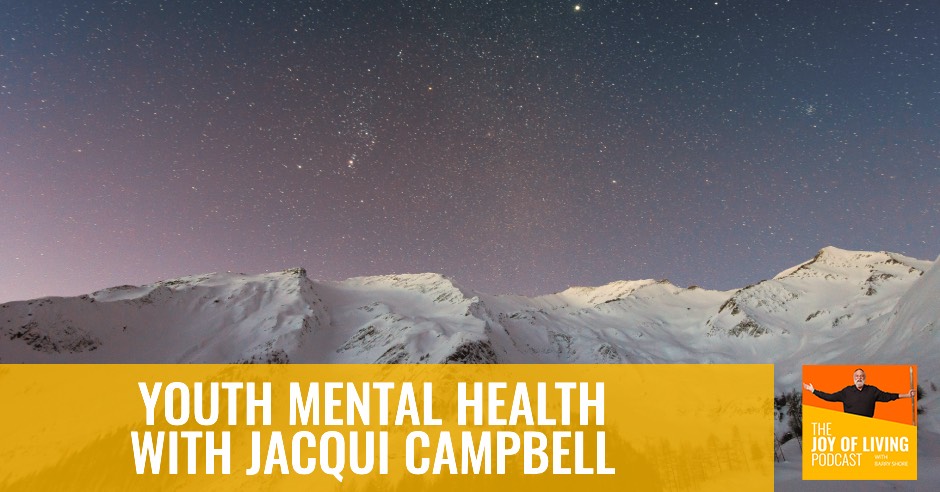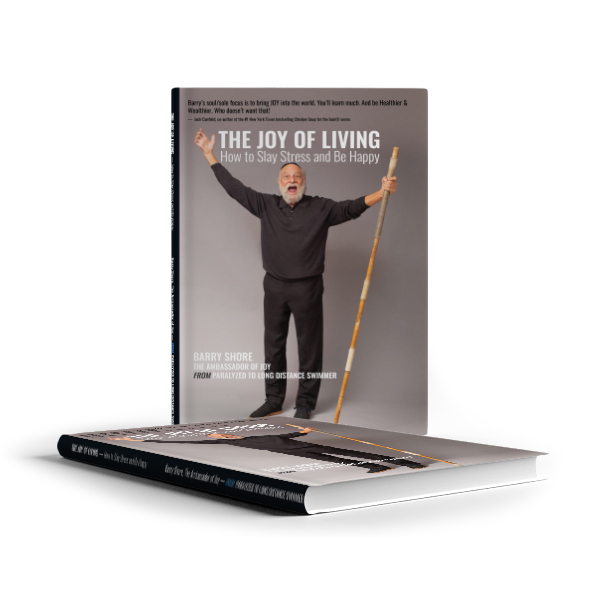Share This Episode

Youth Mental Health with Jacqui Campbell
How many of us are stressed out, even though we have everything we could possibly want? Young people are in the high risk of depression and suicide because of their financial, academic and family pressures. Today we have Jacqui Campbell as our guest. After her brother died from a suicide attempt, she went on a journey of healing and self-discovery. She will share her story with us today so that we can all find strength in times of hardship. This episode is for young guys and parents because the only thing it takes to save a life is: Listening. She also talks about GOD, her faith and how that helped her through the difficult times. How her relationship was with GOD before her brother suicide and how it changed afterwards. We hope this episode encourages you to open up and talk about your feelings and be the light for someone who is struggling in darkness.
Listen Here (click here to watch episode)
Show Notes:
[11.01] Youth Mental Health
- It took the suicide of mt brother Julian for me start seeing things from a completely different perspective.
- At the time of his suicide, I was teacher and a consultant.
- I saw the stress, anxiety, and depression of our young people when my brother committed suicide.
- I saw the stress that we as teachers put them under because we want them to achieve.
- The stress that parents put on their high expectations.
- Eighty percent of adult mental health illnesses are already seen by the time a young person is 18 years old.
- There’s a lot more that we can be doing on that platform from childhood to adulthood to support that young person.
- Mental health and well-being are like emotional intelligence.
- My brother was 40 when he died, and he had bipolar disorder.
- If someone was there to support him in his teenage years, he’d not even be alive…
- But he would be his best version.
- I was an achievement machine.
- And I realized you can have all the achievements and qualifications in the world and if you don’t have your mental health, it doesn’t serve you that much.
[16.16] Stress
- Stress is a high energy and low moods; a mixture of two of them.
- And what we teach our children through workshops and dance etc. is that mood can be changed, and it’s not fixed.
- When someone comes to us and talks about their stress, they think it’s fixed.
- We ask, what in their lives is bringing on that stress.
- We show them how to manage their stress and how to reduce it.
- If somebody is in a high energy and low mood, what they can do to reduce the energy is for example exercise, running, walking, and playing games etc. that will bring down the energy.
- Talking with a friend and drawing can also help.
- Young children don’t know that if they are impressed, they can do two or three days immediately which will impact it and change it.
[20.09] Shifting Mindset
- You’re flexible and more able to control and manage your moods.
- The beginning of emotional intelligence is how to manage yourself and manage your moods.
- [Barry Shore] Reverse the word mood. If you know you’re in control of your mood, then you don’t have to go to doom.
[22.29] Tools to manage moods
- One of the most important tools we use is MOOD MAP.
- You can see a map of the moods.
- And it has a high energy mood on the top and a low energy mood at the bottom.
- We ask young people where are you today?
- If they say stress, it’s high mood and low energy.
- The most important thing to find out what’s behind it is listening.
- As a teacher, I found that it’s difficult for parents to listen because they’re doing a lot to support their family.
- And what our mentor does is listen to what the young person is dealing with.
[32.34] Teen Suicide
- Before the pandemic, we were in a mental health epidemic.
- Here in the UK, it was difficult for young people to get help.
- In school they had mental health services but there were waiting lists.
- Some of them waited several months and some of them waited up to three years to get the help.
- And when they got the help, quite often it was not the help that would make a difference.
- And the pandemic was a benefit as we created teams of volunteers and people started to reach out to us.
- We helped 300 young people in school.
- I was shocked how impactful it was.
[39.05] GOD
- Before my brother died, I knew that he existed, and it wasn’t for me.
- My mom said, Jacqui, don’t you think that you’re successful but if you started praying to God that your life would be even better.
- I thought, why am I going to pray and ask somebody for something that I don’t even know about?
- With the suicide of my brother – that person also died (her previous self.)
- I realized why I was here. And part of it have it starting to have a relationship with GOD.
- I remember praying and asking him if you’re there please help and come to me.
- And there were so many things’ happenings that never happened to me before.
- I start dreaming, I start to see things that I have never seen before.
- I started reading Bible and I read ‘Sermon on the Mount’
- I connected with Matthew where it talks about how blessed you are.
- Every time I felt broken, I’d read it and I’d start feeling pumped up.
Listen to Barry’s life transformative story from 45.00 to 48.17
[49.37] Two Most Powerful Strategies
- For children and young people, it’s important that they check in with themselves.
- Stop and think where I am in the mood map.
- Am I in a low mood or in a good mood?
- Is my energy low or high?
- Because once they check in and they see the way they’re behaving is because they are stressed and anxious.
- After that, they can stop checking in with themselves and then do two or three things to bring themselves down.
- One good thing is taking a deep deep deep breath and holding it for as long as possible.
- Because that’s a great way to shock the system and bring it back to calm
- And they should also find somebody that they can speak with.
- And they could go for a walk.
- But the most important thing is to check in with themselves as most young people might not know what their mood is.
Insider Tips:
4 out of 5 Black American women are overweight or obese. Obesity can be a perilous condition that puts Black women’s health at risk and has the potential to cause or worsen other medical problems such as heart attacks, strokes, diabetes, cancer and more. Life during the pandemic put Black Americans who are dealing with obesity at much higher risk and is now compounding those medical issues and posing greater health threat to the Black community. There is an urgent need to deliberately address excess weight and obesity among Black American women to ensure healthier, productive, and happier lives for them and their families.
TOPICS COVERED:
- Black Americans have the highest rates of obesity and severe obesity compared with other race and ethnicity groups – and notably, 4 out of every 5 Black American women are overweight or obese. Can you talk about this and the role that it plays on other areas of one’s health?
- October is Health Literacy Month. Why is improving health literacy so important to lowering the rates of obesity in the Black community, who are disproportionally impacted by this disease?
- COVID-19 impacted us all. But what has it meant for the Black community and for the obesity epidemic in particular?
- Why is it so important to have an individualized approach to weight loss and what does this look like?
- In the spirt of Fight to Flourish – what advice would you give other women facing this journey?
- Where should people go to learn more?
For more information please visit: www.ethicon.com
Important Links:
About Jacqui Campbell
Jacqueline Campbell is the founder of the Julian Campbell Foundation (JCF), a charity that has made a difference to many young people, teenagers, and their families. The strategies used enable young people to identify and monitor their moods and develop their emotional intelligence. With higher degrees in Education and Public health, Jaqueline began her career as a science teacher and went on to enjoy 20 years of teaching in some of the most difficult inner-city London schools, as well as training teachers and raising standards of schools through consultancy.
[bctt tweet=”Stress is a high energy and low moods; a mixture of two of them.” username=”ambassador4joy”]
THIS SHOW BROUGHT TO YOU BY ORGANIFI
use code LIVING for 20% off your next order


